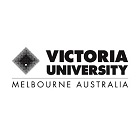Master of Engineering
Master of Engineering
Gain specialised skills in electrical power, telecommunications, process engineering or water management and aim for a top engineering career with the Master of Engineering. The Master of Engineering prepares you for work in fast-growing industries, with a strong emphasis on real-world problem-solving and international trends. You’ll acquire targeted skills through…
Categories
COURSE DESCRIPTION
Gain specialised skills in electrical power, telecommunications, process engineering or water management and aim for a top engineering career with the Master of Engineering.
The Master of Engineering prepares you for work in fast-growing industries, with a strong emphasis on real-world problem-solving and international trends.
You’ll acquire targeted skills through a combination of coursework, design exercises and research. You’ll have the chance to develop and implement innovative telecommunication or power-distribution solutions, with real-world applications.
Our College of Engineering and Science has world-class facilities, including high-tech engineering labs, and a very strong research community.
In the latest Excellence in Research for Australia results we were rated:
- ‘well above world standard’ in electrical and electronic engineering
- ‘above world standard’ in engineering overall.
You can specialise in the following areas of engineering:
- Electrical Power
- Telecommunications.
Engineering research excellence
When you study for a Masters of Engineering with VU, you’ll be part of a world-class research environment. The College of Engineering and Science research is ranked above world standard by Excellence in Research for Australia.
You’ll have access to state-of-the art labs with modern equipment. Our support services, programs and infrastructure give you the best road to success in your postgraduate study.
Our research groups are:
- Advanced food systems (including biotechnology; chemical, analytical and polymer science)
- Applied ecology
- Alternative energy
- Engineered packaging and distribution (including thermodynamics; fluid mechanics; vibrations and dynamics; chemical, analytical and polymer science)
- Structural mechanics and materials (including sustainable buildings)
- Smart energy
- Telecommunications, electronics, photonics and sensors
- Water resources.
Careers in engineering
On graduation you’ll be able to prepare for a career in one of the following:
- power generation, transmission, distribution, management and control
- managing, designing and developing telecommunication network systems
- microelectronic and electronic design
- water-related government organisations and private firms.
Course structure
To be eligible for the Master of Engineering, students are required to complete 192 credit points in total, consisting of:
- 48 credit points of Common Interdisciplinary units;
Learning outcomes
On successful completion of this course, students will be able to:
1. Conceptually map the most recent theoretical developments in their Engineering specialisation and justify their application in various contemporary and emerging professional contexts.
2. Contribute to the discourse and practice around ‘engineering sustainability’ and elaborate the links between Engineering and innovation.
3. Critically apply knowledge and skills relevant to both their chosen specialisation and the broader discipline of Engineering to new and uncertain professional practice scenarios, exhibiting a high level of personal autonomy and accountability.
4. Design, implement and evaluate Engineering projects or research which address complex issues and transmit subsequent findings to specialist and non-specialist audiences.
5. Formulate and strategise project management plans which accurately meet stakeholder needs and expectations.
REQUIREMENTS
Completion of an Australian Bachelor degree (or equivalent) in a similar discipline OR
Completion of an Australian Graduate Diploma (or equivalent) in a similar discipline
English language requirements
IELTS (or equivalent): Overall score of 6.5 (with no band less than 6.0 in Listening, Reading, Writing and Speaking)
TOEFL Internet: Overall score of 79
Pearson Test of English (PTE): Overall score of 58-64 (with no section score less than 50)
University of Cambridge – Advanced (CAE): Overall score of 176. No individual band less than 169.
VU English – English for Academic Purposes (EAP) (Level 6): Achieved.
EDUCATIONAL INSTITUTION
Victoria University (VU) is an educational provider offering internationally-recognised, world-class qualifications in Melbourne and Sydney – two of the world’s most liveable cities. Its industry-focused courses cover a diverse range of subject areas and many are offered as pathways across multiple levels of education. Students can also choose to study foundation studies and English language courses through its highly-ranked English language centre. Ranking in the top 2% of universities worldwide (Times Higher Education World University Rankings 2021), VU has more than 100 years of experience and over 4,000 partnerships and connections with industry.




